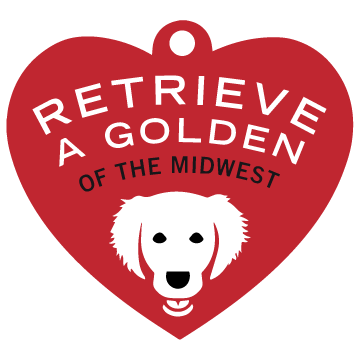Make Good Choices for Your Dog
Golden Retrievers seem to come in two sizes: long and lean, and "ottoman." If your Golden is the fatter latter, it's time to evaluate the food you feed your dog—and how much—as well as how many snacks you hand out. Remember, dogs can't shop for themselves and many will overeat if given the chance. They depend on you to make the right choices for them!
Some dogs can be sensitive to specific proteins and grains. But many quality dog foods offer a variety of formulas that your dog can tolerate and benefit from. A quality dog food can help maintain your dog’s coat and dental health, and some believe can extend overall longevity.
RAGOM recommends food that is high in protein. Please talk to your vet—and do your own research—to learn more about dog food quality and ingredients. If you are in the process of adopting from RAGOM, we can provide guidelines for choosing an appropriate food for your dog.
How Much and How Often?
When calculating how much food to feed your dogs, consider their activity level. The caloric needs are quite different for a fetching fool than for a couch potato. Also, feeding twice each day in smaller servings can help prevent bloat, a potentially fatal condition that occurs when dogs eat too much food too fast.
Treats are a great tool for training. If you offer store-bought treats, read the ingredients label and avoid treats that are high in fat, preservatives, and chemicals. Many people use food kibble as a training treat and reduce the portion served at mealtime.
Other good treats: raw baby carrots, apple wedges (no seeds), air-popped popcorn, raw beef bones, or a bite of hot dog. Look for dog biscuit bakeries in your area; a Google search can help locate these. They bake fresh treats using human-grade ingredients that dogs love.
If you need to administer a pill to your dog, a dab of peanut butter on the end of a spoon perfectly masquerades the pill. Dogs love canned pumpkin, sweet potatoes, and applesauce as well.
Hazardous to Dogs
Even though dogs are omnivores, there are foods your dog should never have including onions, grapes, raisins, cooked bones, high fat foods, sugary treats, chocolate, coffee or coffee beans, macadamia nuts, and some dairy products (however, plain yogurt is good for restoring the natural flora of the intestinal tract after antibiotic treatments). For more information, review Hazardous to Pets.
